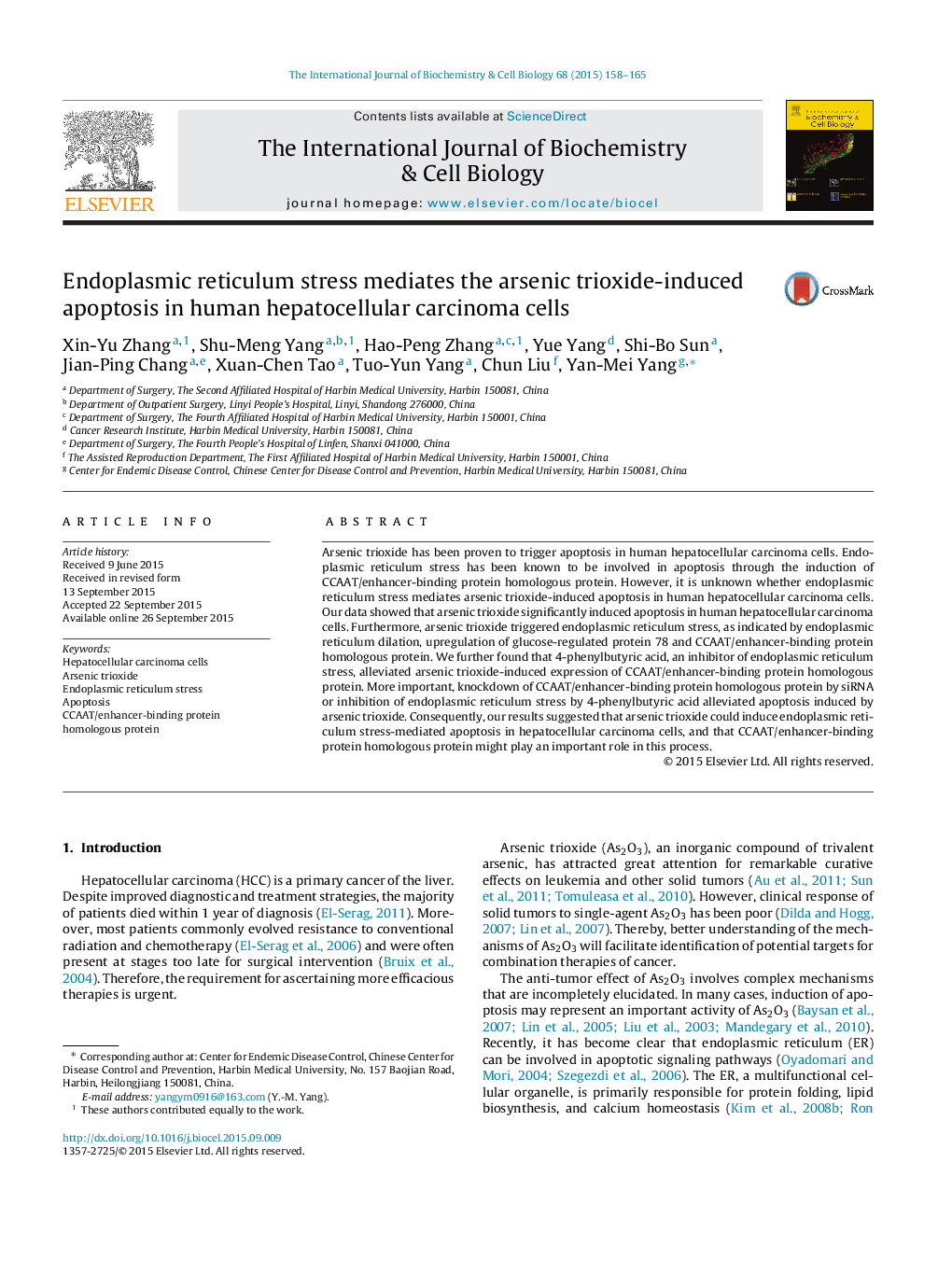| کد مقاله | کد نشریه | سال انتشار | مقاله انگلیسی | نسخه تمام متن |
|---|---|---|---|---|
| 1983455 | 1539876 | 2015 | 8 صفحه PDF | دانلود رایگان |
Arsenic trioxide has been proven to trigger apoptosis in human hepatocellular carcinoma cells. Endoplasmic reticulum stress has been known to be involved in apoptosis through the induction of CCAAT/enhancer-binding protein homologous protein. However, it is unknown whether endoplasmic reticulum stress mediates arsenic trioxide-induced apoptosis in human hepatocellular carcinoma cells. Our data showed that arsenic trioxide significantly induced apoptosis in human hepatocellular carcinoma cells. Furthermore, arsenic trioxide triggered endoplasmic reticulum stress, as indicated by endoplasmic reticulum dilation, upregulation of glucose-regulated protein 78 and CCAAT/enhancer-binding protein homologous protein. We further found that 4-phenylbutyric acid, an inhibitor of endoplasmic reticulum stress, alleviated arsenic trioxide-induced expression of CCAAT/enhancer-binding protein homologous protein. More important, knockdown of CCAAT/enhancer-binding protein homologous protein by siRNA or inhibition of endoplasmic reticulum stress by 4-phenylbutyric acid alleviated apoptosis induced by arsenic trioxide. Consequently, our results suggested that arsenic trioxide could induce endoplasmic reticulum stress-mediated apoptosis in hepatocellular carcinoma cells, and that CCAAT/enhancer-binding protein homologous protein might play an important role in this process.
Journal: The International Journal of Biochemistry & Cell Biology - Volume 68, November 2015, Pages 158–165
